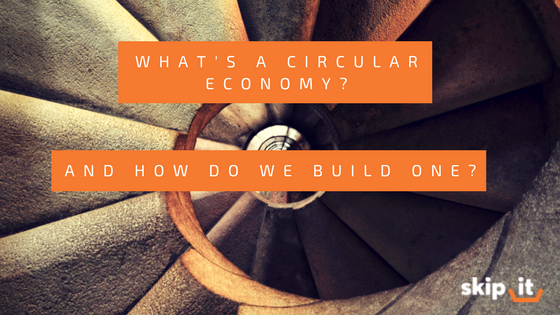Towards the end of last month, the European Parliament officially approved changes to the Waste Framework Directive, which established new targets for waste clearance and recycling, as well as initiating a drive to move towards a ‘circular economy.’ MEP Simona Bonafè said the changes would require member states to ‘follow clear and common measures on the life cycle of raw materials and waste disposal.’
While the UK’s impending exit from the EU means these changes are unlikely to have a tangible impact on our own targets – our politicians and media are still likely to pay close attention.
What are the EU’s new waste clearance targets?
Here’s a quick look at some of the new targets:
- A target for member states to recycle at least 55 per cent of all municipal waste by 2025.
- By 2030, this will rise to 60 per cent, and 65 per cent by 2035.
- The new law also limits the amount of municipal waste clearance sent to landfills to a maximum of 10 per cent by 2035.
These targets will not apply to the UK directly. Instead, we will follow the targets established by the Department for Environment, Food and Rural Affairs (DEFRA), established in January as part of their five-year environment plan. Nonetheless, as current and successive British governments seek to prove that Brexit will not mean a lowering of environmental standards, there’s every chance that EU measures will continue to have a ‘soft influence’ effect on our own proposals.
What’s a circular economy?
These changes in EU legislation come as part of a wider drive to create a sustainable ‘circular economy’. To fully understand what a circular economy entails, we should first take a look at our current model of production:
Extract – Produce – Use – Dispose.
This applies as much to tangible materials that could otherwise be recycled as it does to more abstract assets like energy and gas.
The two ends of the supply chain are unsustainable. For the extraction end, there’s only a limited supply of resources to extract from the earth, and the extraction process of these materials is often environmentally damaging. On the other end of the scale, there’s only so much space available for landfill use, the use of which is also environmentally damaging.
The essence of circular economy proposals is that the two unsustainable ends of the supply chain can be linked up, making the entire process self-sustaining. For immediate materials, we know this as recycling. However, recycling is just one cog in the machine, and the wider circular economy drive seeks to apply this logic to as many aspects of production as possible.
How do we get a circular economy?
Circular economy proposals are not just beneficial for the environment. They also offer significant economic benefits. DEFRA has calculated that UK businesses could benefit by up to £23 billion a year by adopting such schemes. And considering that China no longer accepts imports of foreign waste clearance – it’s even more important for us to divert our waste clearance back into our economy.
Waste-to-energy schemes are one such exciting proposal that embodies the essential principles of a circular economy. Sustainable energy is just as fundamental an aspect of these principles as waste management – and such schemes seek to combine the two, creating sustainable energy from waste.
As well as the obvious benefits of re-diverting our waste clearance to help create sustainable energy, the waste-to-energy scheme has a range of other benefits. Landfill use can be reduced substantially, while the levels of carbon dioxide being released into the atmosphere should also reduce. The process even extracts reusable materials like metals and aggregate for construction. With such win-win results for everybody, the pressing question is exactly why haven’t waste-to-energy processors been put to good use everywhere?
Responsible waste clearance services
As a country, we’ve made some good progress – but there’s much yet to be done before our waste clearance processes can be declared entirely self-sustaining. Until then, whether it’s your house clearance services, business waste collection services or a simple skip hire, make sure you trust the waste collection experts at Skip It to ensure your waste goes to a good place.






